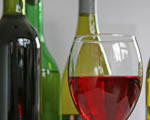 Go to main content
Go to main content
Archive Website of the UK government
Please note that this website has a UK government accesskeys system.
Main menu
Page menu
Parents

Encouraging sensible drinking

Young people see alcohol on sale all around them, and they might also see their parents drinking alcohol. This can make it difficult for them to understand that alcohol can be dangerous. Find out how to help your child develop a healthy attitude towards alcohol.
Sensible drinking - guidance from England's Chief Medical Officer (CMO)
Parents and carers are advised that an alcohol-free childhood is the healthiest and best option. However, if young people do drink alcohol, the CMO has issued the following guidance:
- young people should not drink at all until they are at least 15 years old
- if young people aged 15 to 17 years drink alcohol, it should always be under the supervision of a parent or carer
- if 15 to 17 year olds do drink it should not be often – certainly no more than one day a week
- 15 to 17 year olds should never drink more than the recommended daily limit for adults
Recommended daily limits
Government guidelines say that men shouldn’t drink more than three to four alcohol units a day. Women are advised to drink no more than two to three units a day. The amounts are different because men’s bodies can process alcohol more quickly than women’s.
These guidelines are for adults, but the Government’s health experts recommend they are also followed by young people if they drink. However, because young people take longer to process alcohol, it is a good idea for them to drink less, or not to drink at all. Alcohol poses particular risks to young people under 15, and the advice is that children under this age should not drink.
How is alcohol content measured?
The alcoholic content of a drink is measured in units. A pint of lager generally contains just over 2 units, while a glass of wine can contain between 1.5 to over 3 units. This depends on the size of the glass and the strength of the wine.
Alcoholic drinks vary in strength and also in volume, and these amounts are always shown on bottles and cans. The volume is marked in millilitres or ‘ml’. The strength is indicated as a percentage of alcohol – often abbreviated to ‘ABV’ or simply ‘vol.’
It’s easy to work out the number of alcohol units in a drink. Just multiply the strength by the volume and divide by 1000.
Encouraging a healthy attitude towards alcohol
As children grow up, their attitude towards alcohol will be shaped by what they see, hear and experience at home. The following tips might help your child develop a healthy attitude to alcohol.
What parents of younger children can do
- if your child is curious about alcohol, talk to them about it - tell them about both the negative and social sides of drinking
- make sure children don't drink alcohol by accident or without your permission - if you have alcohol at home, keep it out of reach
- if you drink, set a good example and drink in moderation - it will help your child develop a sensible attitude to alcohol
- respect the law regarding young people and alcohol - don't buy alcohol for your child if they are underage
What parents of older children can do
It's difficult to know when to let teenagers drink as there is no 'right' age. If your child has started drinking however, these tips will help them learn to drink safely:
- set clear boundaries for your child and be consistent about them
- encourage your child to stick to lower-strength brands and not to drink too quickly
- try not to overreact if your child drinks against your wishes, or drinks too much
- if your child has drunk excessively, explain how you feel and encourage them to talk about why it happened
- agree rules on alcohol at parties and be around if your child has a party at home
- if your child is going to drink, give them starchy food (like bread or pasta) so they won't be drinking on an empty stomach
- remove temptations at home like your own stock of drink (especially spirits)
- make sure your child has a way of getting home safely at night
Will my child learn anything about alcohol at school?
Alcohol education takes place in all schools in England alongside drugs education. Your child will be given accurate information about alcohol at their school. The point of this is to give them the skills they need to make safe and responsible choices.
 Facebook
Facebook Twitter
Twitter StumbleUpon
StumbleUpon Delicious
Delicious Reddit
Reddit